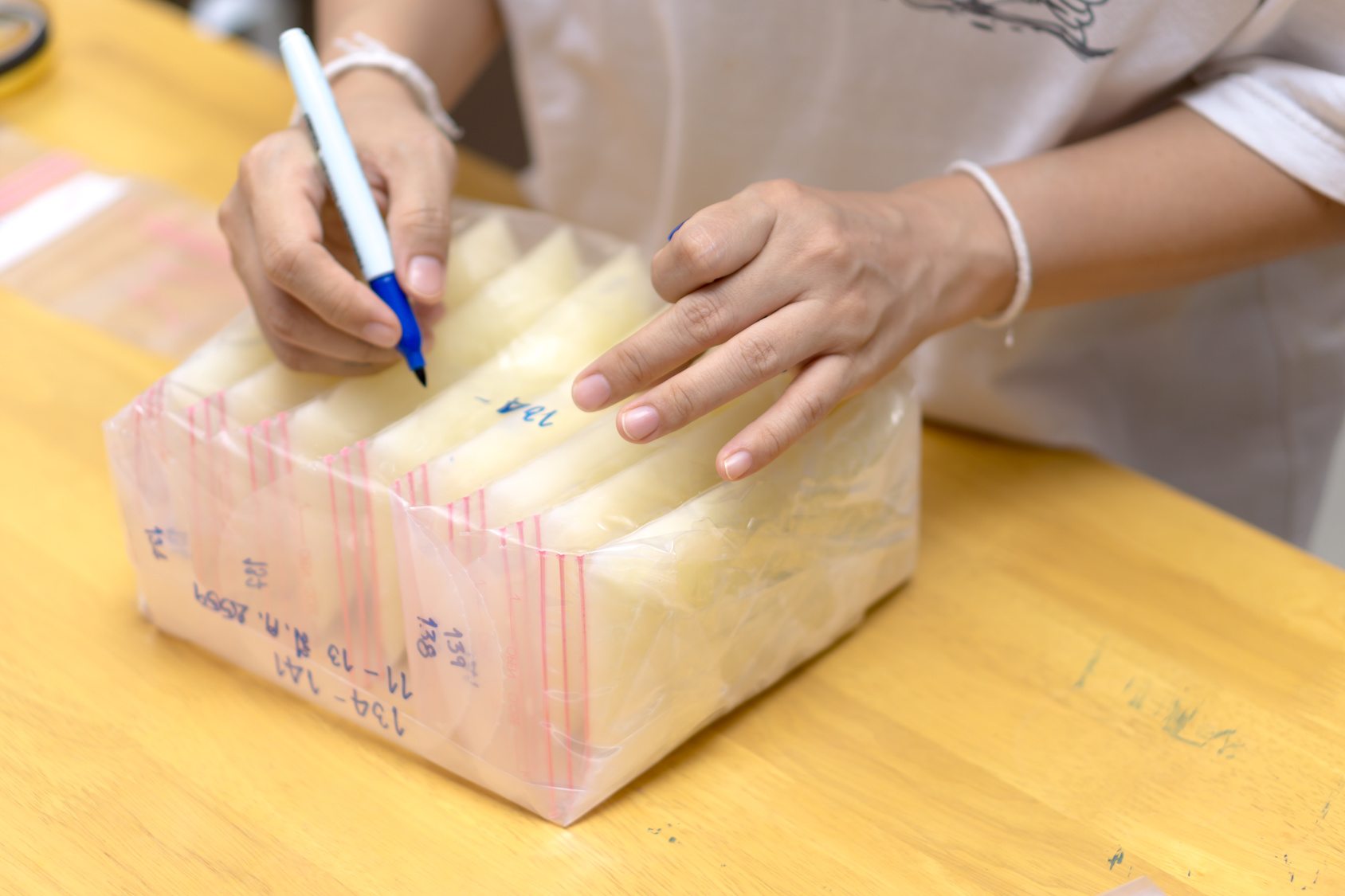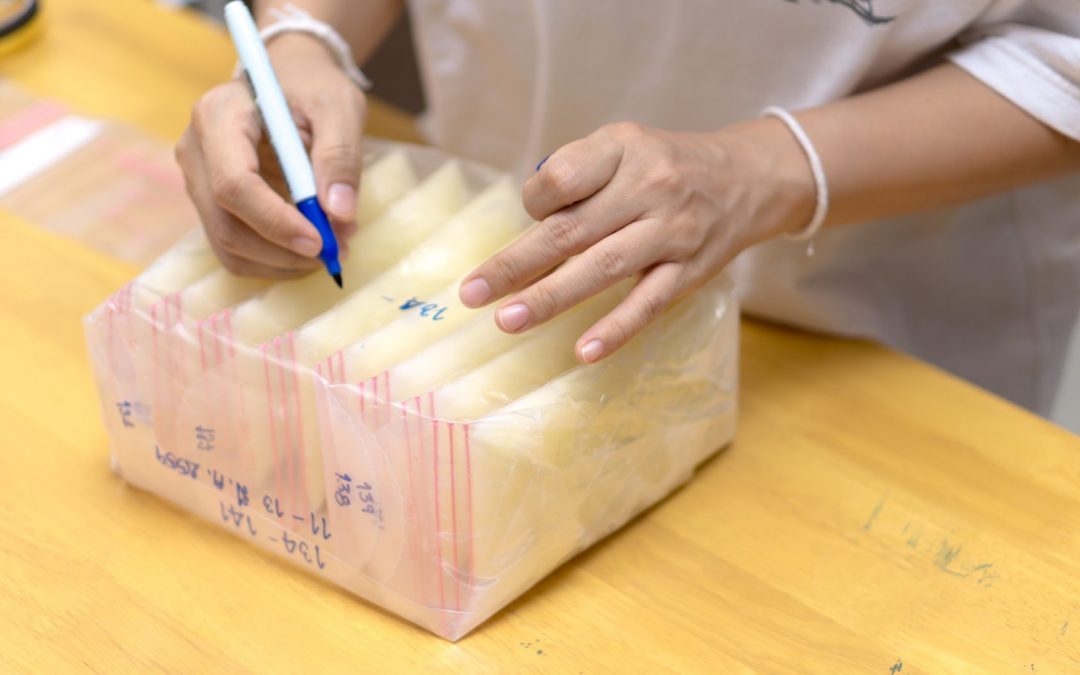
Breastfeeding can play a significant role in the early days of our young ones. Most mothers would love to breastfeed their young ones, but unfortunately, not all of us can produce enough milk for our newborns. Some situations can also prevent us from breastfeeding.
But what happens to young ones whose mothers face a challenge in breastfeeding? In most cases, milk supplements turn to be the solution. While formula and soy supplements have evolved as healthy alternatives, some infants who are born prematurely or with life-threatening illnesses may benefit from the introduction of breast milk over these processed alternatives. However, the stress of premature birth or other situations may prevent these infants’ mothers to produce breast milk.
As a solution, medical professionals have come up with an intervention to substitute supplements with real human milk. In this response, they are asking healthy mothers to donate their excess milk to infants whose mothers who are unable to breastfeed their infants, specifically to those infants in the NICU. This holiday season, if you’re able, consider donating excess your breast milk to mothers and their infants in need.
How Can We Donate Excess Human Milk?
Donating our human milk can be the best gift we can give to the unfortunate hearts out there. In the initial step, we need to prepare ourselves toward providing the minimum amount of breast milk, set at 200 ounces by many milk banks.
After the commitment, we should be prepared for an assessment designed to select liable donors. Mostly, the initial screening process is carried out using a written questionnaire or a phone interview. Some of the information collected from the interview include organ transplant history, diet and alcohol intake.
During the assessment, mothers with the conditions below are ruled out from milk donation.
- Those who received blood or organ in the past one year
- Alcohol and illicit drug users
- Those with long-term illnesses like HIV
- Those in a long-term use of prescribed or over the counter drugs
After the interview, a doctor will carry out blood tests and other screening tests to check for various medical conditions that can compromise the safety of the donation.
Those of who pass the interview will provide a written consent showing a willingness to donate. After consenting, the donor then submits a sample of her breast milk. The human milk bank tests the milk for disease-causing pathogens.
If the sample passes the safety test, the human milk bank sends a kit used to collect, store and mail the donation back to the milk bank.
How Human Milk Banks Work
Human milk banks blend the milk received, a step carried out to increase the donation’s nutrient value. After blending, the milk bank carries out nutrition analysis to determine the amount of proteins, fat and calories in the milk.
Milk that meets the recommended nutritive value is packed and sterilized to kill disease-causing microorganisms. After sterilization, the fluid is tested for the presence of disease-causing organisms. Safe milk is then donated to disadvantaged young ones who need the donation.
What are Human Milk Banks?
There are two main types of human milk banks: One type is a not-for-profit milk bank that collects free milk as donations. The milk received is then donated to disadvantaged babies identified by their extent of need.
On the contrary, some milk banks buy milk from breastfeeding mothers and sell it to clients who need the milk. If you’re purchasing breast milk from these milk banks, ensure the quality and safety of milk supplied.
Who are the Best Candidates For Human Milk Donation?
Human milk donation is ideal for mothers who fail to produce enough milk, those with breast cancer, those with multiple births and other medical issues that may contribute to insufficient milk.
Furthermore, children with the medical conditions below are recommended for human milk donation.
- Those who are born prematurely
- Children diagnosed with cerebral palsy and other types of brain damage
- Children who are allergic to cow’s milk
- Children with cancer
The donated human milk is as safe and nutritious as their biological mother’s breast milk. The milk is quickly digested. It also contains the essential antibodies that protect recipients from various diseases.
Where Can We Get Donated Human Milk?
Most hospitals have a milk reservation for mothers who are unable to breastfeed their young ones. The hospitals are a better solution for parents who are not given priority by local not-for-profit human milk banks.
Additionally, a mother can ask health practitioners to refer her to the nearest not-for-profit milk bank. Besides giving referrals, doctors can also write a prescription showing the recipient’s need for the donation.
The Cost of Human Milk
Even the not-for-profit milk banks charge a fee on the milk provided. Although the milk is obtained free of charge, the not-for-profit milk banks need the fee to cater for expenses used in screening, preserving, packing and distributing the milk alongside renting office space.
Human milk donation is a life-saving solution to disadvantaged infants. This holiday season, consider taking a step to donate your excess breast milk could mean saving a life.


 Complete Our Simple Online Form
Complete Our Simple Online Form We’ll Handle All The Paperwork
We’ll Handle All The Paperwork Receive Your Free Ameda Pump
Receive Your Free Ameda Pump